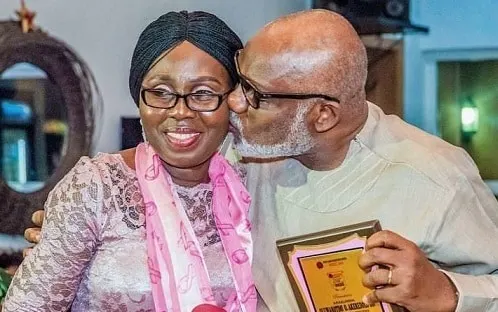By
Taiwo Olanegan

To an Ọwọ person, culture is paramount. This profound reverence for norms and obedience to taboos – regardless of one’s religious beliefs – and the highest regard for the palace may not be understood by other Yoruba groups within the Yoruba nation. If you disrespect the town’s cultural practices, you disregard the people; they will overlook all the roads you have built or political appointments you have given and treat your memory like leprosy.

What are these cultural ethos? The first is seniority in age. The Yoruba are known for their respect for elders, but in Ọwọ, it is a religion. A two-year age difference is the permissible gap. I have never been called by my name, Taiwo, by cousins I am merely 24 months older than. Nor would I be foolish enough to address those older than me by their names, even if we shared a class or dormitory. To take it to a level you might not believe, cultist gangs could attack or even kill someone simply because an Ojo was not called “buroda” (brother). The zeal for culture often defy modernity.
If your older cousin qualifies as a Senior Advocate of Nigeria (SAN), is elevated to a professorship, or is elected governor, his new title is irrelevant between you. When you talk at the family house or on the phone, he expects to hear you emphasize “buroda” or “anti” repeatedly. Ọwọ demands respect! We strive to earn it and unashamedly expect it to be accorded. If you refuse to give it legitimately, the violent may take it by force – there are probably more guns in the town than in near places. Ọwọ is closer to Benin than Ife. The people of this ancient town and culture are phenotypically more related to the Edo than their Yoruba linguistic identity. Who knows, the proclivity to settle scores with weapons may be part of shared genes.
The second ethos is deep reverence for royalty. Chieftaincy in Ọwọ is primarily hereditary. There is only one ruling house that produces an Ọlọwọ. Do not be swayed by exaggerated claims of a governor’s influence in solely installing an Olowo. You do not become an Ọlọwọ by accident or luck. If you are at least 35 years old and did not know by age 18 that Prince Ajibade Ogunoye would be king, you are not a full member of Owo society. I was barely 16 when I shared a dormitory with the then much older Prince Ajibade in an elite school. His cousins, the Olateru-Olagbegis, were in my class and hostel, but we all knew matter-of-factly that Ajibade Ogunoye would someday be Ọlọwọ. Divinity eventually crowned him. The town erupted in joy but not in surprise.
This Ọlọwọ, Oba Ajibade Gbadegesin Ogunoye is a king with multiple university degrees, including law. He rose to become a permanent secretary in the state’s civil service. Do not be deceived by his handsome looks and debonair photography; this king is not your typical party-loving, owambe, Oba but an unapologetic worshiper of his gods and ancestors. It is forbidden for an Ọlọwọ to see a corpse or any symbolism associated with death. It is sacrilege to drive a hearse through the vicinity of his palace. The much-loved celebratory ajabue dance to honor a departed soul is neither condoned nor allowed on the streets adjoining the Ọlọwọ’s palace. Every normal Ọwọ person knows and observes this. A cenotaph symbolizes funerals, coffins, and burial. Its erection directly in front of the palace was seen as a spite to culture, a desecration of prescribed authority, and an affront to an Oba who embodies civility, erudition, law, traditional religion, and pure royalty.
The hullabaloo about the demolition of a cenotaph – which should not have been located there – was avoidable. But how can you help a stubborn man who refused to acknowledge his culture and persisted in his hubris despite repeated admonitions to respect the palace – an umbrella over his own ori? The battle is now carried on by his widow. Betty Anyanwu-Akeredolu is a grandmother and the wife of the late Governor Rotimi Akeredolu, SAN, and Chancellor of the Owo Anglican Diocese – a church I live in and would love to rest in when called home. She ought to be respected for the sacred names and institutions she is privileged to be associated with; sadly, she lacks the grace and character to bear such honors.
Do not put precious stones in the mouth of a pig – that is the main lesson, not the demolition of a symbol arrogantly opposed to the culture of the Ọwọ people. The pain is that Governor Rotimi Akeredolu is no more. The bulldozing would have been sweeter if he were alive.
CULLED FROM FACEBOOK

